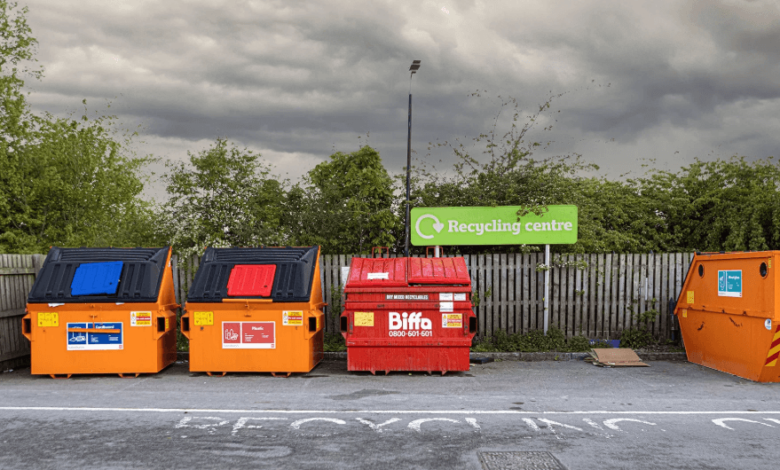Disposal Bins Near Me: Convenient Options for Efficient Waste Management

Finding disposal bins near me is essential for managing waste responsibly and keeping communities clean. Many public spaces, parks, and commercial areas have designated bins for trash, recycling, and sometimes compost. Locating these bins typically involves checking local government websites or popular map apps that show bin locations.
Accessibility and proper use of disposal bins help reduce litter and promote recycling efforts. People often overlook nearby options simply because they don’t know where to look, but most cities provide ample disposal points designed for convenience.
Knowing exactly where disposal bins are can save time and encourage better waste habits. This article guides readers on how to quickly find disposal bins near them, making it easier to dispose of waste correctly.
Finding the Best Disposal Bins Near Me
Choosing the right disposal bin involves knowing where to find reliable services, understanding the bin types available, and identifying key features that meet specific disposal needs. These factors help ensure the bin is convenient and practical.
How to Search for Local Disposal Bin Services
Using online tools like Google Maps or waste management websites helps locate nearby disposal bin providers quickly. Typing specific queries such as “disposal bins near [city]” or “waste container rental [area]” refines the search.
Checking local government or municipality websites can reveal authorized vendors with compliant services. Customer reviews and ratings give insight into service quality and reliability before committing.
Contacting multiple vendors allows comparison of pricing, availability, and bin sizes. Some providers may offer flexible rental terms or delivery options that better suit a project’s timeline.
See also: Carpet and Flooring Store Near Me: Find Quality Materials and Expert Service Nearby
Understanding Different Types of Disposal Bins
Disposal bins vary by size, material, and purpose. Common types include roll-off containers, front-load dumpsters, and recycling bins. Each type serves different waste volumes and disposal methods.
Roll-off bins suit construction debris or large cleanups due to their open-top and large capacity. Front-load dumpsters fit regular commercial waste collection with lids and compact designs.
Some bins are designated for specific waste like electronics, hazardous materials, or recyclables. Identifying the correct bin type prevents contamination and meets disposal regulations.
Top Features to Consider When Choosing Disposal Bins
Size is a key feature: choosing a bin that matches the waste volume avoids unnecessary costs. Providers usually offer sizes from 10 to 40 cubic yards.
Material and build quality affect durability. Steel bins withstand heavy debris better than plastic ones and are preferred for construction or demolition projects.
The ease of delivery and pickup matters. Providers offering prompt scheduling and clear policies reduce delays. Additionally, verifying permits and disposal methods ensures legal compliance.
Additional features like lid types, lock options, and accessibility shape effectiveness for specific needs.
Cost, Booking Process, and Environmental Impact
Disposal bins vary in cost depending on size and rental duration. Booking usually involves choosing the right bin, submitting details, and arranging delivery. Environmental impact depends on how waste is sorted and processed after collection.
Typical Pricing Structures for Disposal Bins
Prices for disposal bins typically depend on bin size, rental period, and local fees. Common sizes range from 2 to 40 cubic yards. Smaller bins (2-6 yards) may cost between $150 and $300 for a week. Larger bins (20-40 yards) often range from $400 to over $800 per week.
Additional charges may apply for overfilled bins or prohibited items like hazardous waste. Some companies include transportation and landfill fees in base prices, while others list them separately.
Steps to Book a Disposal Bin in Your Area
Booking generally starts by selecting the bin size based on the waste volume. Next, the user provides pickup address, contact details, and preferred delivery date. Many services offer online booking forms or phone reservations.
After booking, confirmation details and pricing are sent. Customers should verify pickup times and restrictions on waste types. Payment may require a deposit or full prepayment depending on the provider’s policy.
Environmental Considerations and Responsible Disposal
Proper disposal begins with sorting recyclable materials from landfill waste. Many disposal companies partner with recycling facilities to divert metals, wood, and cardboard.
Improper disposal of hazardous items like batteries or chemicals can harm the environment and may be illegal. Customers should check local guidelines and communicate restrictions to the disposal company.
Using a disposal bin responsibly reduces landfill impact and supports local recycling efforts. Some services provide documentation of waste processing for environmental compliance.





